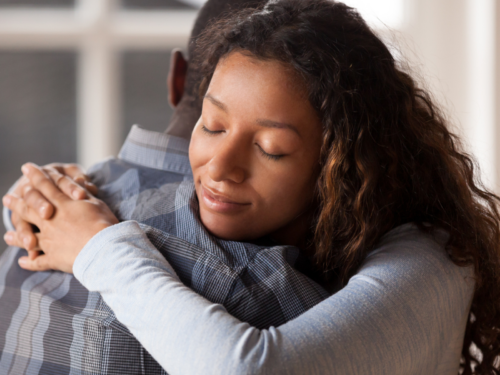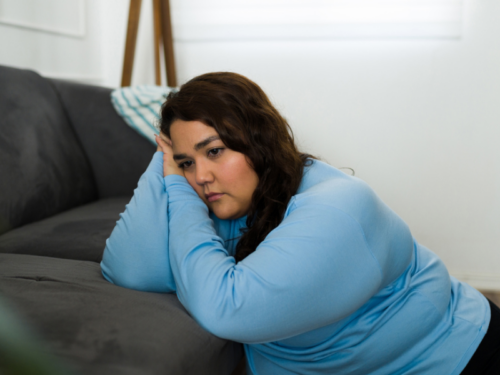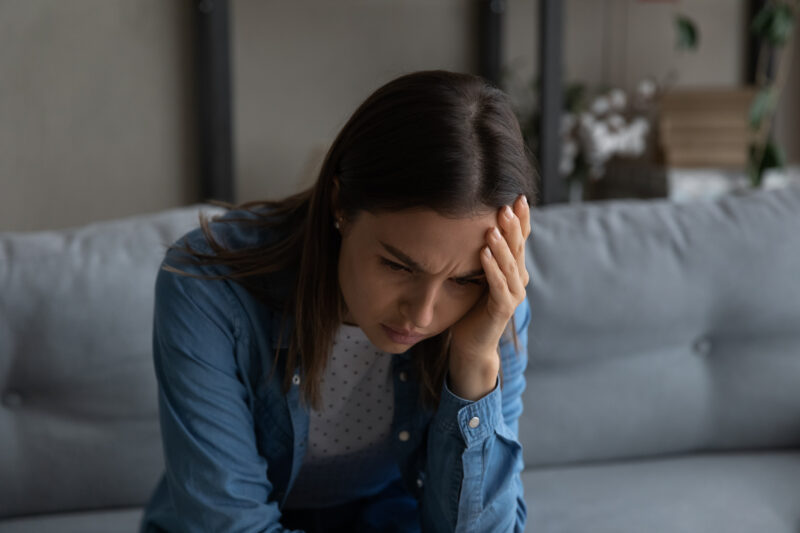
Table of Contents
The Link Between Alcohol and Panic Attacks—and How to Cope

Written By: Ashley Laderer
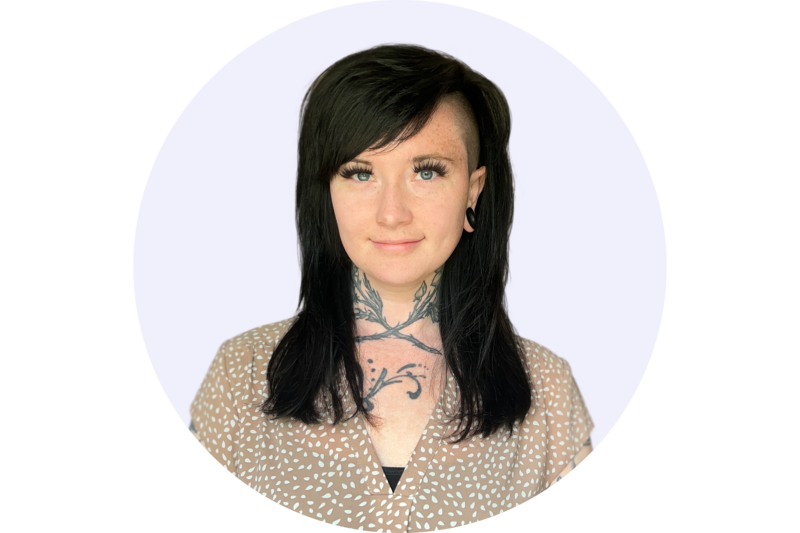
Clinically Reviewed By: Rebecca Holland
December 2, 2024
7 min.
Are you experiencing panic attacks after drinking alcohol? We’re explaining the link between alcohol and anxiety –– plus six ways to cope with panic attacks.
Learn more about our Clinical Review Process
Table of Contents
Have you ever experienced shortness of breath, a racing heart, trembling, and an overall sense of impending doom after drinking? If so, you might have had an alcohol-induced panic attack. Panic attacks are intense episodes of super-high anxiety and intense fear. They come on quickly and end quickly, too. While panic attacks typically occur out of nowhere for no reason, alcohol intake can directly or indirectly trigger them for some people.
It’s no secret that alcohol has major impacts on the brain and body, so it’s no wonder that it can have mental health impacts, including anxiety. Read on to learn about the connection between alcohol and panic attacks, coping strategies, and tips for when to seek professional help.

Treatment for alcohol use disorder and panic attacks
Virtual, intensive therapy and medication management.
What is the link between alcohol and panic attacks?
Alcohol is a central nervous system depressant that slows down brain activity. “Initially, alcohol may provide a temporary sense of relaxation and reduce anxiety, which may lead individuals to use alcohol as a coping mechanism,” says Anne Oeswein, LPC-S, M.Ed, a Clinical Supervisor with Charlie Health.
However, this can quickly backfire. “As the alcohol wears off, individuals might experience rebound anxiety, where stress levels become elevated,” Oeswein adds. This is because levels of neurotransmitters (chemical messengers in the brain) get thrown off, which can lead to heightened anxiety.
The main neurotransmitter in question is gamma-aminobutyric acid (GABA). GABA plays an important role in the central nervous system, helping to promote feelings of calm and reduce anxiety. At first, drinking alcohol increases GABA activity –– but as the effects of alcohol wear off and your brain tries to balance out neurotransmitters, GABA activity decreases, which can lead to increased anxiety. Not to mention, if you’re a chronic heavy drinker, it can further deplete GABA and impact other neurotransmitters, too.
It’s also important to note that some of the physiological effects of alcohol, such as increased heart rate, dizziness, and nausea, can mimic the symptoms of a panic attack, Oeswein says. Ultimately, this can trigger more anxiety symptoms.
Plus, alcohol withdrawal plays a role in anxiety, too. “When a person stops drinking, they can experience alcohol withdrawal symptoms, which can include increased anxiety and panic attacks,” Oeswein says.
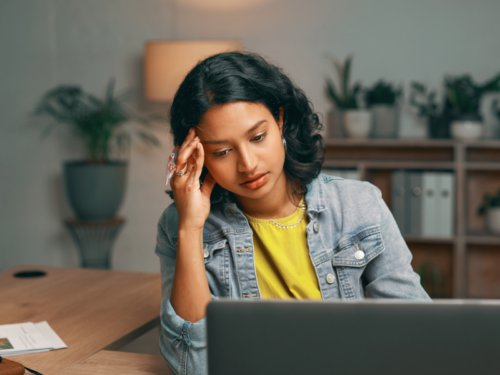
What are the signs of a panic attack?
On top of understanding the link between drinking alcohol and panic attacks, it’s also important to educate yourself on panic attacks and their symptoms. Understanding the signs can help panic attacks feel a little less scary. Although a panic attack feels super dangerous, and you might even feel like you’re dying, a panic attack in and of itself is not dangerous. You cannot die from a panic attack. Remember, panic attacks come on super quickly and end quickly, too –– typically within five to 20 minutes.
These attacks consist of both physical and mental symptoms. Physical panic attack symptoms are:
- Difficulty breathing or hyperventilating
- Feeling like you’re choking
- Chest pain or fast heart rate
- Shaking or trembling
- Sweating or chills
- Nausea
- Dizziness or lightheadedness
- Numbness or tingly feeling in your extremities
Mental panic attack symptoms are:
- Intense fear (of losing control, dying, going “crazy,” etc.)
- Sense of impending doom
- Feeling like your surroundings aren’t real (derealization)
- Feeling like you’re detached from your own body (depersonalization)
Some people who have panic attacks develop an anxiety disorder called panic disorder. On top of having panic attacks, panic disorder symptoms include:
- Worrying about/fearing when and if you’ll have another panic attack
- Avoiding places where you’ve had a panic attack before
- Fearing or avoiding places where you think you might have a panic attack
- Impacted quality of life and functioning due to panic attacks and fear of subsequent panic attacks
How to cope with alcohol-related panic attacks
Having a toolbox of coping strategies can help you prepare for when a panic attack kicks in and prevent it from happening in the first place. Here are six tips.
1. Abstain from alcohol
When alcohol is a clear cause of your panic attacks, it’s important to abstain from drinking alcohol, Oeswein says. Additionally, if you’re prone to panic attacks or already have existing anxiety, it’s best to keep away from alcohol consumption altogether. This will decrease your risk of having more panic attacks. “Reducing alcohol consumption contributes to better physical health, which can have a positive impact on mental health, making it easier to cope with anxiety and panic,” says Oeswein.
2. Identify any other triggering substances
On top of alcohol, Oeswein says it’s important to identify any other triggers that might contribute to panic attacks. This way, you can limit these, too. For example, caffeine, especially excess caffeine consumption, can trigger anxiety.
Smoking cigarettes or vaping are other possible culprits. Additionally, cannabis can worsen anxiety in some people. Determine if any of these other substances cause you anxiety symptoms, and then cut those out, too.
3. Get enough sleep
Sleep deprivation is harmful to both physical health and mental health. “Lack of sleep can heighten anxiety levels and increase the likelihood of panic attacks,” Oeswein says. She adds that alcohol can cause sleep disturbances, which is another reason it may contribute to anxiety symptoms.
4. Use relaxation techniques
Relaxation techniques, such as practicing mindfulness, can help reduce panic, Oeswein says. Here are a few ideas for mindful breathing exercises to help you relax.
- Mindful belly breathing: Breathe in deeply through your nose as your belly expands. Notice how the breath feels going in. Exhale slowly through your mouth and notice your belly falling. Notice any other thoughts that come into your mind, and try to accept them without judgment, and let them go.
- Box breathing: Breathe in for the count of four, hold for four, exhale for four, and then hold for four before repeating the cycle.
- 4-7-8 breathing: Breathe in through your nose for the count of four, hold it at the top for seven, and exhale for eight.
These types of exercise can activate your parasympathetic nervous system, helping you calm down. It’s best to practice these regularly when you are not at the height of a panic attack so that you can reduce overall anxiety levels and feel more confident using these skills if/when a panic attack strikes.
5. Try grounding techniques
Grounding techniques help get you out of your head, stop your racing anxious thoughts, and help bring you into the present. They can involve paying attention to certain sensations or things around you.
Some examples of grounding techniques are:
- Putting an ice pack on your chest or neck
- Taking a cold shower
- Holding ice cubes in your hands
- Doing progressive muscle relaxation (which involves purposely tensing and releasing all the muscle groups in your body)
- Using the 54321 technique (naming 5 things you see, 4 things you can feel/touch, 3 things you can hear, 2 things you can smell, and 1 thing you can taste)
6. Lean on social support
Having a positive support network is crucial, Oeswein says. Numerous research studies have found social support to play a role in reducing anxiety symptoms and boosting overall mental wellness. Open up to trusted loved ones, family, and friends about your anxiety. Even just talking about anxiety with people can help you calm down.
Plus, having friends or family members who are sober can help you cut back on alcohol consumption or get sober altogether.
When should you seek professional help?
If you find yourself constantly having alcohol-induced panic attacks or if you can’t control your heavy drinking, it could be a sign that you’re engaging in substance abuse. Alcohol use disorder (also referred to as AUD, alcohol addiction, alcohol abuse, or alcoholism) is when you excessively consume alcohol and can’t stop drinking, even despite negative consequences in your life.
According to Oeswein, some signs of alcohol use disorder are:
- Increased tolerance (needing to drink more to get the same results)
- Increased time spent drinking
- Drinking to cope with difficult feelings
- Withdrawal symptoms after drinking, when alcohol’s effects have worn off
- Loss of control with drinking
- Neglecting responsibilities
- Engaging in risky behaviors
- Social and interpersonal issues
- Losing interest in other activities outside of drinking
- Physical health problems
If any of these sound like you, it’s important to reach out to a mental health professional –– preferably one who is substance use disorder certified, Oeswein says. Or in some cases, rehab may be an appropriate option, especially if you need to detox from alcohol safely and have medical help with alcohol withdrawal symptoms.
Additionally, if you think you may have panic disorder or another anxiety disorder, it’s crucial to seek help, too. A mental health professional can diagnose you, teach you ways to cope, and refer you to a psychiatrist who can prescribe anti-anxiety medication if necessary.
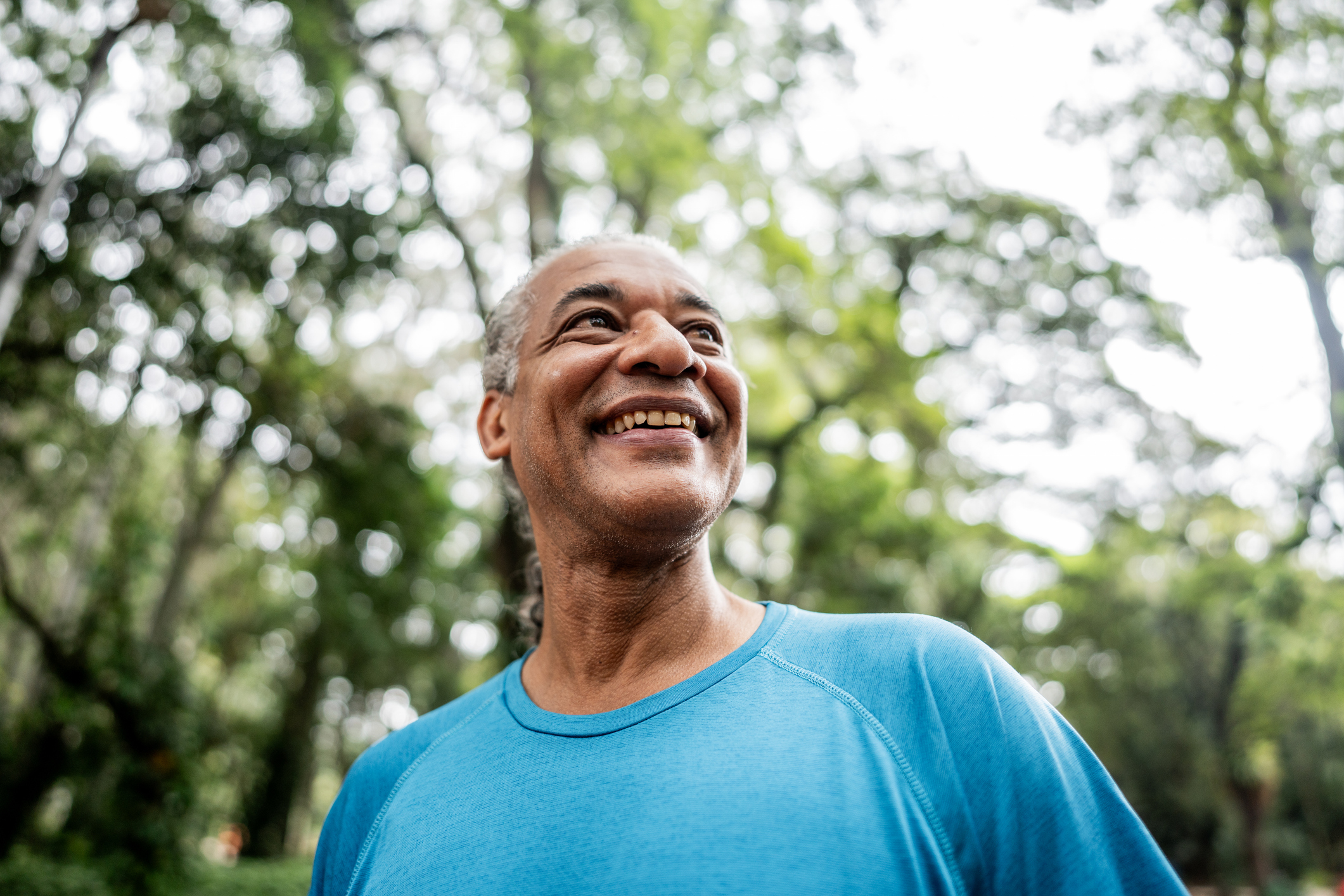
How Charlie Health can help
If you struggle with alcohol use disorder (AUD), panic attacks, or both, Charlie Health is here to help. Charlie Health’s virtual Intensive Outpatient Program (IOP) provides more than once-weekly mental health treatment for people who are dealing with serious mental health conditions, including AUD and co-occurring disorders, such as panic disorder and severe anxiety.
Our compassionate clinicians meet you where you are on your recovery journey and create personalized treatment plans to help you heal. We incorporate evidence-based therapies into individual counseling, family therapy, and group sessions. With this kind of holistic treatment, recovery from AUD and anxiety is possible. Fill out the form below or give us a call to start your healing journey today.
References
https://medlineplus.gov/alcohol.html
https://my.clevelandclinic.org/health/articles/22857-gamma-aminobutyric-acid-gaba
https://www.frontiersin.org/journals/psychiatry/articles/10.3389/fpsyt.2017.00173/full
https://www.frontiersin.org/journals/neural-circuits/articles/10.3389/fncir.2023.1218737/full
https://my.clevelandclinic.org/health/diseases/4451-panic-attack-panic-disorder
https://pmc.ncbi.nlm.nih.gov/articles/PMC9917758/
https://www.va.gov/WHOLEHEALTHLIBRARY/tools/progressive-muscle-relaxation.asp
https://www.niaaa.nih.gov/publications/brochures-and-fact-sheets/understanding-alcohol-use-disorder

